Three charges and are placed as shown in the figure. The -component of the force on is proportional to
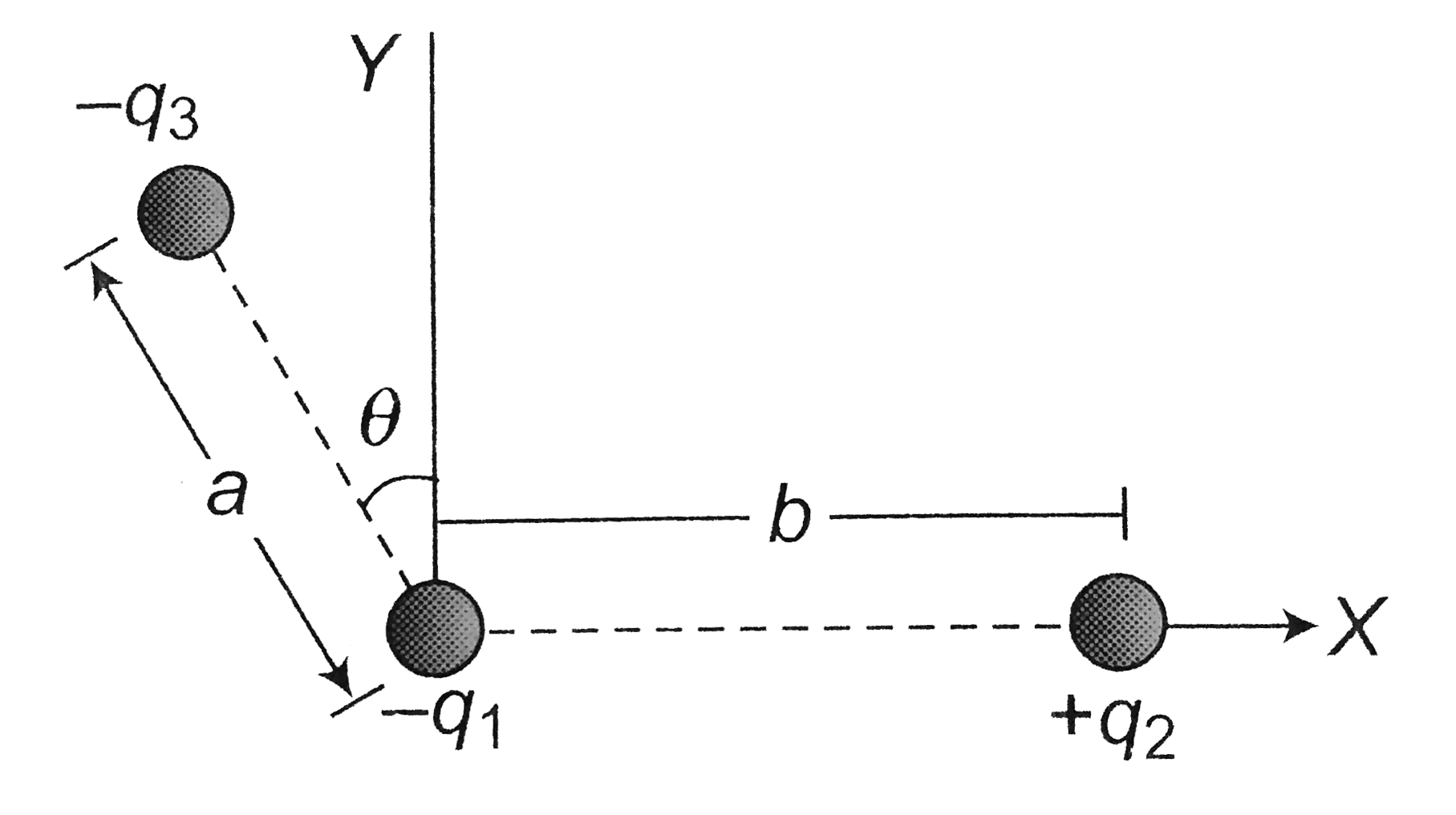
The correct Answer is:C
Use superposition principle
Topper's Solved these Questions
Similar Questions
Three charges q1,q2 and q3 are shown in figure . Determine the net force acting on charge q1 . The charges and separation are given as q1=−1.0×10−6C,q2=+3.0×10−6C, and q3=−2.0×10−6C,r12=15cm,r13=10cm and θ=30∘.
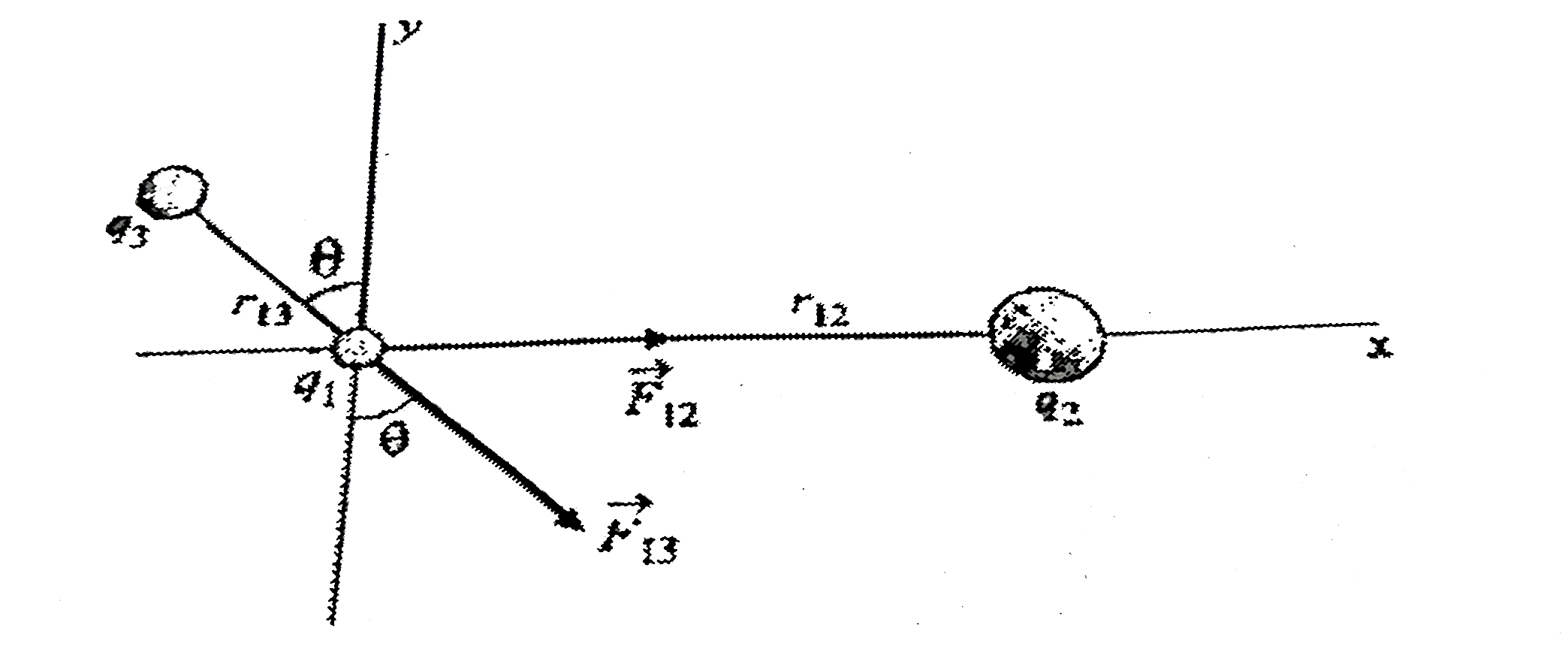
View SolutionAssertion (A): Three point charges Q1,Q2 and Q3 are shown in the figure. The flux over the Gaussian surface depends on only one charge point.
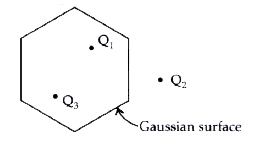
Reason (R): Electric flux depends on the all charges nearby.
View Solution
Knowledge Check
Three charges +q, +q, +2q are arranged as shown in figure. What is the field at point P (center of side AC)
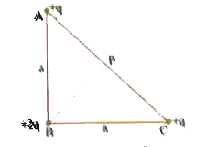 AE=qπε0a2BE=q2πε0a2CE=q3πε0a2DE=q4πε0a2
AE=qπε0a2BE=q2πε0a2CE=q3πε0a2DE=q4πε0a2Two charges q1 and q2 are placed 30cm apart, as shown in the figure. A third charge q3 is moved along the arc of a circle of radius 40cm from C to D. The change in the potential energy o fthe system is q34πε0k., where k is
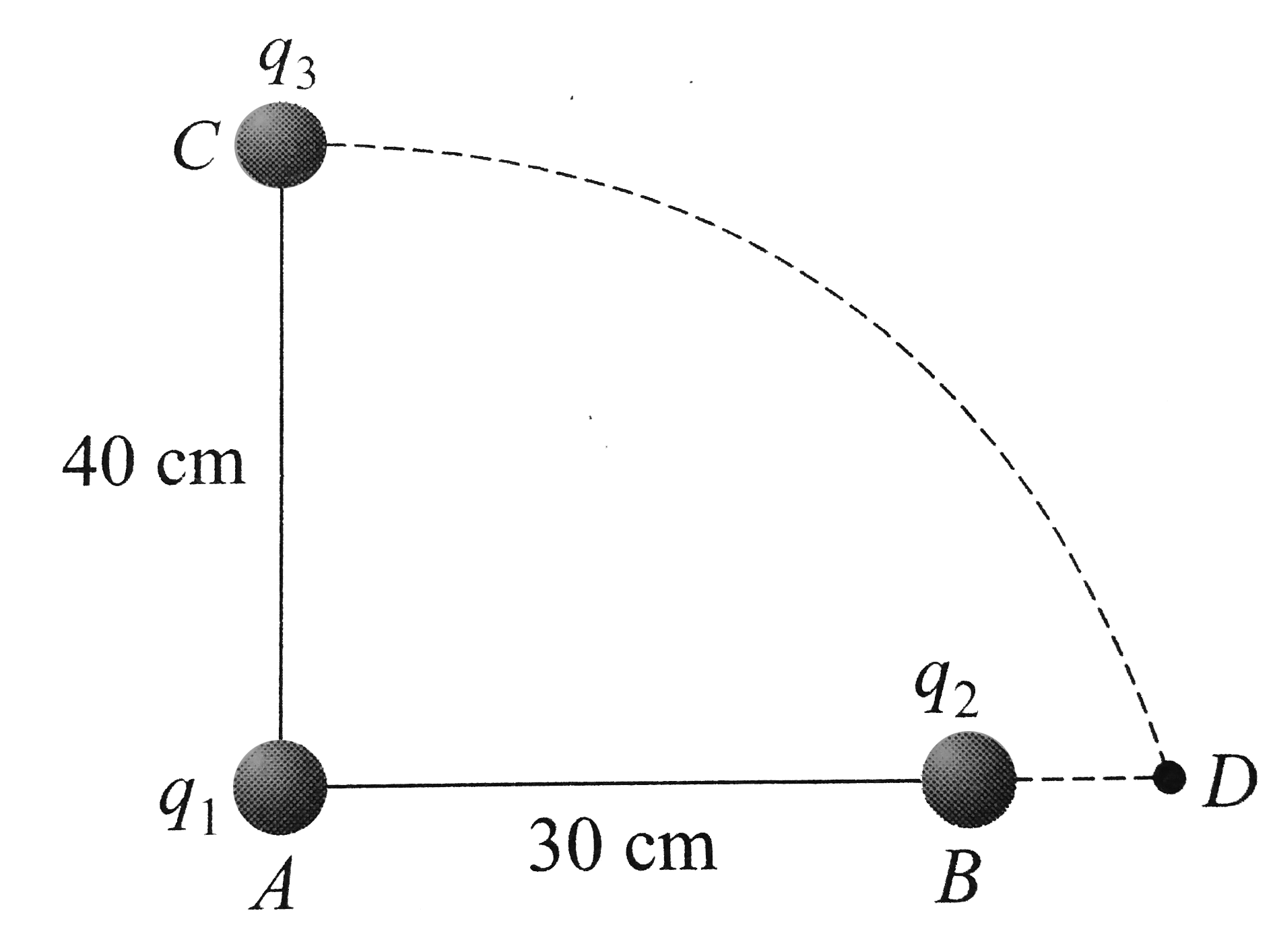 A8q1B8q1C4q1D4q1
A8q1B8q1C4q1D4q1The value of charge q1,q2andq3 as shown in the figure are
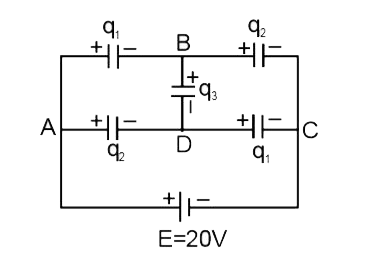 Aq1=32μC,q2=24μC,q3=−8μCBq1=48μc,q2=16μC,q3=+8μCCq1=32μC,q2=24μC,q3=+8μCDq1=3μC,q2=4μC,q3=+2μC
Aq1=32μC,q2=24μC,q3=−8μCBq1=48μc,q2=16μC,q3=+8μCCq1=32μC,q2=24μC,q3=+8μCDq1=3μC,q2=4μC,q3=+2μC
In an isolated parallel plate capacitor of capacitance C the four surfaces have charges Q1,Q2,Q3 and Q4 as shown in the figure. The potential difference between the plates is :
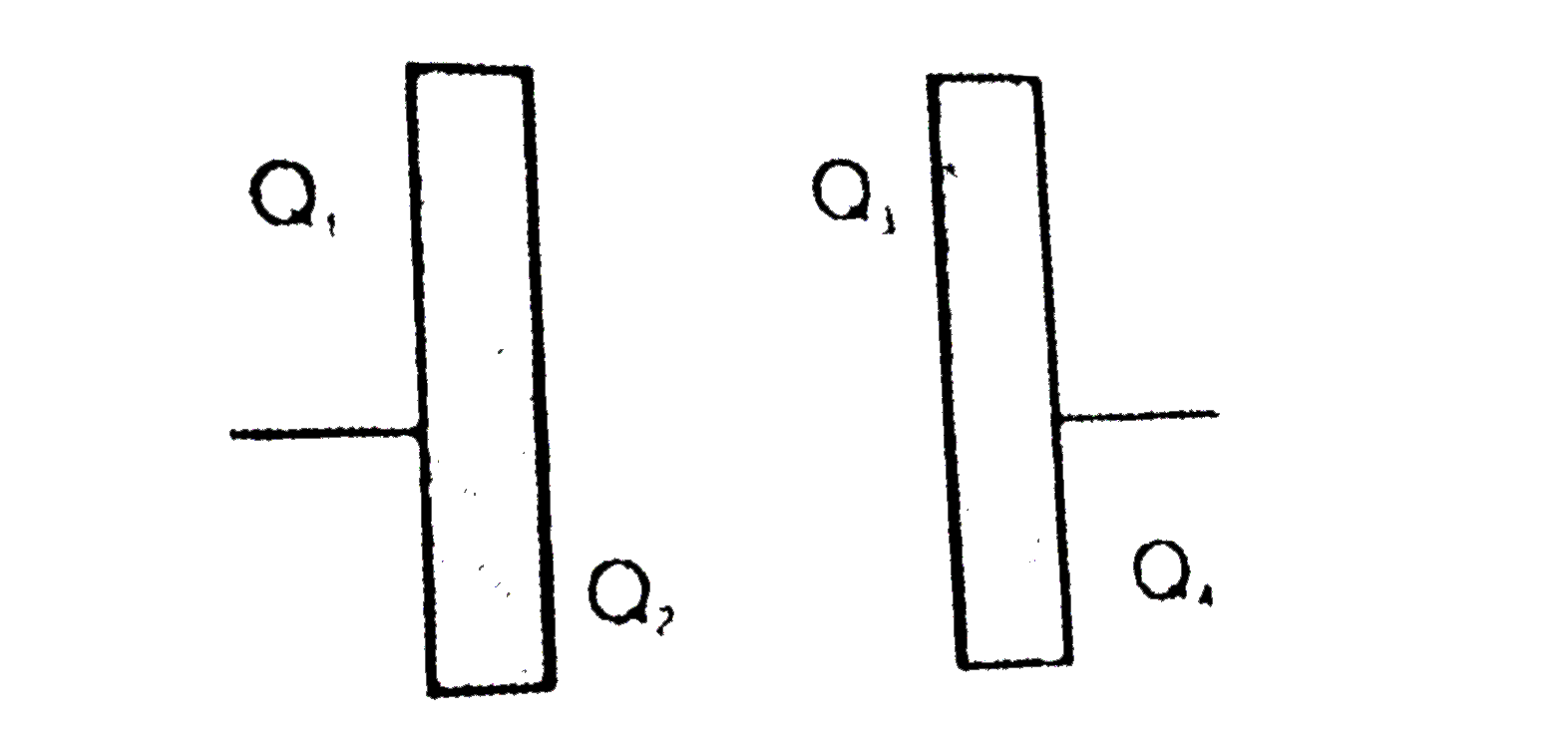
View SolutionThree charge +Q,+Q and −Q are placed at the corners of an equilateral triangle. The ratio of the force on a positive charge to the force on the negative charge will be equal to
View SolutionConisder a system of three charges q/3, q/3 and −2q/3 placed at point A, B and C, respectively, as shown in the figure. Take O to be centre of the circle of radius R and angle CAB=60∘
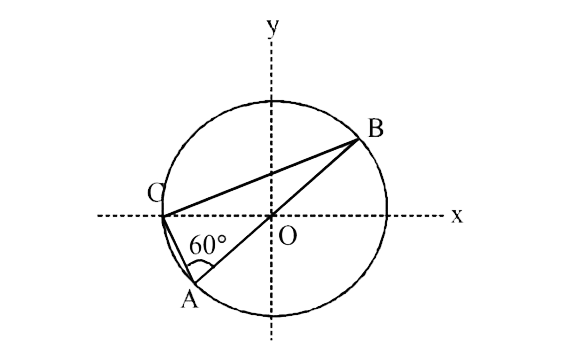
View SolutionAssertion: Two charges q1 and q2 are placed at separation r. Then magnitude of the force on each charge is F.
Reason: Now a third charge q3 is placed near q1 and q2. Then force on q1 and q2 remains F.
View SolutionTwo points charge q1 and q2(=q1/2) are placed at points A(0,1) and B(1,0) as shown in the figure.The electric field vector at point P(1,1) makes an angle q with the x-axis ,then the angle q is
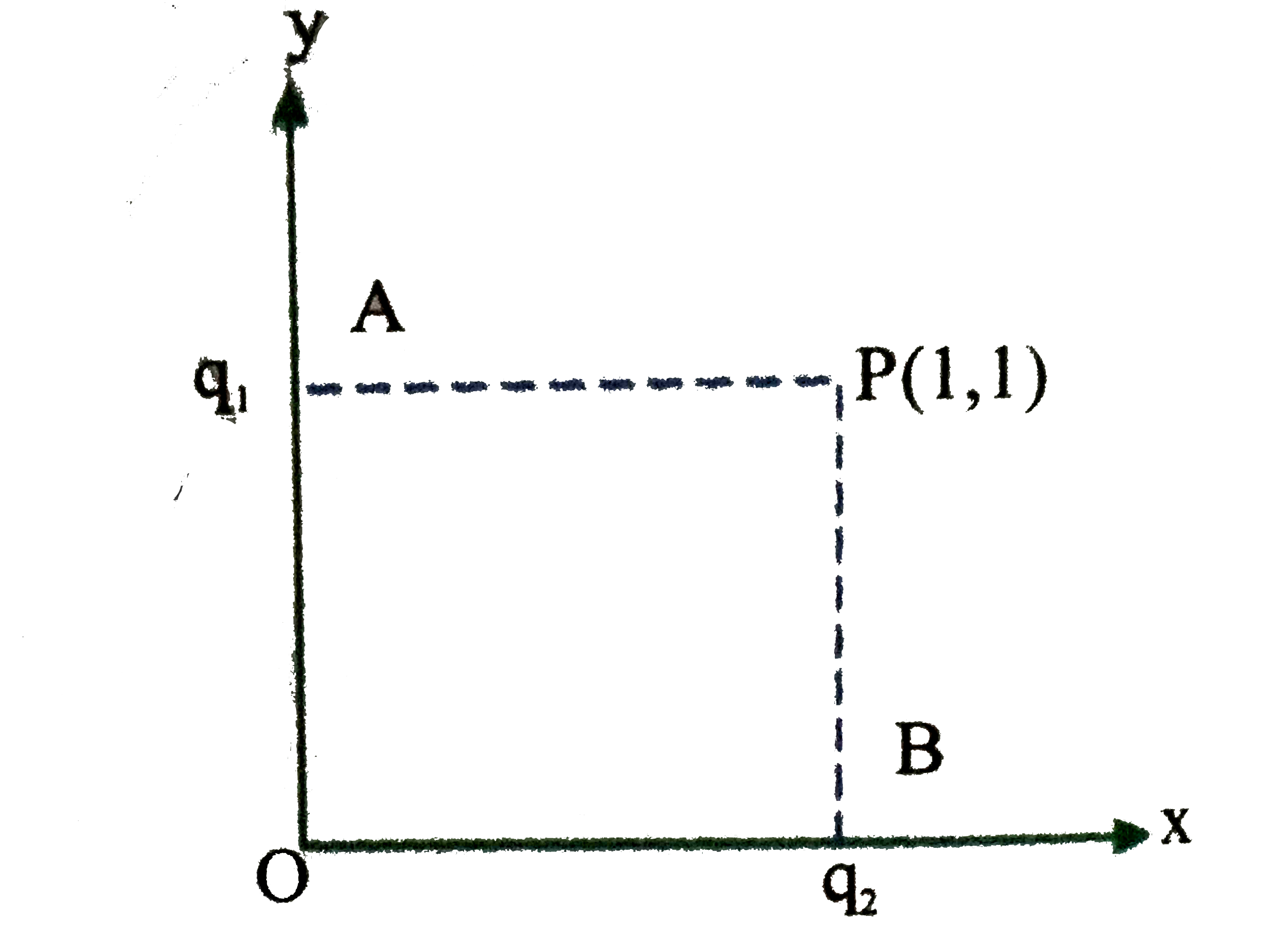
View Solution
